CISAC names 2020-21 fellows and researchers
CISAC names 2020-21 fellows and researchers
The Center for International Security and Cooperation (CISAC) is pleased to welcome the fellows and researchers who will be joining us for the 2020-21 academic year. These scholars will spend the academic year generating new knowledge across a range of topics that can help all of us build a safer world.

Meet our incoming scholars:
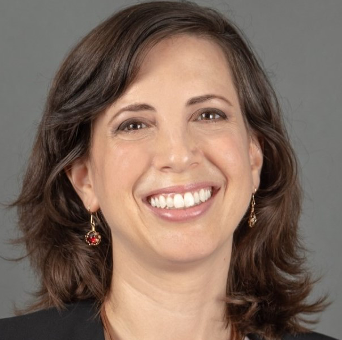
Gil Baram
I am a PhD candidate at Tel Aviv University’s School of Political Science, Government and International Relations. My postdoctoral research at CISAC focuses on national decision making during cyber conflicts. Studying the attribution question in particular, I explore the shift in the longstanding convention of silence on cyber conflict as a covert practice. I study the reasons state actors are increasingly addressing cyber attacks publicly despite their covert nature, and use new data and combined methods to investigate when and under what circumstances they are likely to decide various attribution strategies.
Previously, I have held fellow positions with the Centre of Excellence for National Security at Nanyang Technological University in Singapore and the Blavatnik Interdisciplinary Cyber Research Center at Tel Aviv University, and served as Head of Research at the Israeli think tank Yuval Ne'eman workshop for Science, Technology and Security. I hold an M.A. (Magna Cum Laude) in Security Studies from Tel Aviv University.
Hobbies/Interesting Facts: I am a certified therapeutic horseback riding instructor.
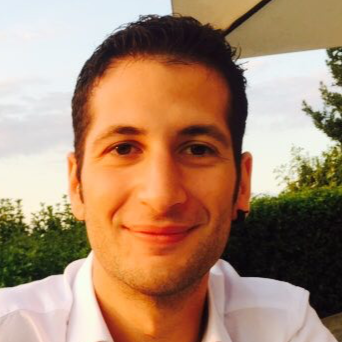
Andrea Bartoletti
I have a Ph.D. in Political Science from the University of Chicago. My research interests span on international security and IR theory with a focus on the origins of major wars, polarity and war, U.S. grand strategy in the Indo-Pacific region, and great powers' intervention in civil wars.
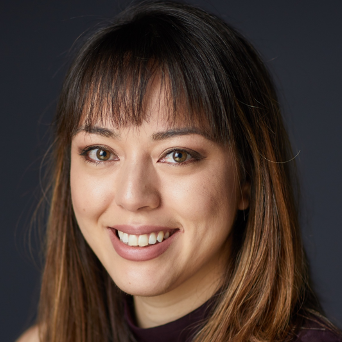
Samantha Bradshaw
I have a Ph.D. from the Oxford Internet Institute at Oxford University. I am broadly interested in the relationship between technology and democracy, and the politics embedded into the technical design and private practices of platform companies. My postdoctoral fellowship work will examine the gender dimensions of disinformation, and how harassment and misogyny are used to suppress the political participation of women online.
Prior to joining CISAC, I worked on the Computational Propaganda Project at Oxford University, where my research examined the producers and drivers of disinformation and propaganda online.
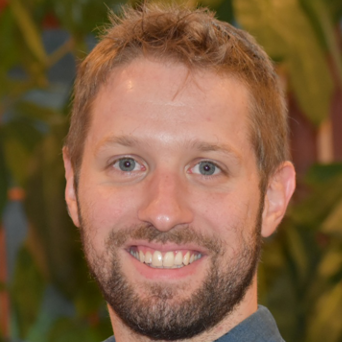
Stephen Buono
I have a Ph.D. from the History Department at Indiana University. My research and teaching interests are diverse, but cluster together at the convergence of science and technology, modern intellectual and political history, and the story of what scholars now call "America in the world." My first book project, The Province of All Mankind, narrates the emergence of outer space as a discrete realm of U.S. foreign policy and international law during the 1950s and 1960s, particularly efforts to preserve the cosmos as a "sanctuary" from the Cold War. In addition to the AHA and NASA, my work has benefited from the support of the Carnegie Corporation, the Eisenhower Foundation, and the John F. Kennedy Presidential Library. My recent articles have appeared in Diplomatic History, Diplomacy & Statecraft, and Perspectives on History.
Before arriving at CISAC, I was an Aerospace History Fellow with the American Historical Association and the National Aeronautics and Space Administration (2019-2020) and an Assistant Editor for Diplomatic History, the journal of the Society for Historians of American Foreign Relations (2016-2019).
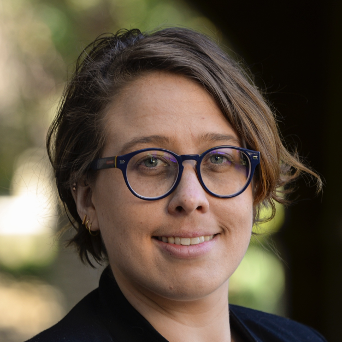
Melissa Carlson
I have a PhD from the Department of Political Science, University of California, Berkeley. Broadly, my research examines the dynamics of military partnerships between state governments and foreign militant groups. My dissertation develops an organizational theory of third-party provision of support: when foreign militant groups and state armed forces share similar organizational characteristics, they are more likely to form joint commands, carry out joint attacks, and provide each other with advanced weapons systems. My other research interests focus on factors that influence informal cooperation between states, and on how refugee perceptions of host communities, host governments, and aid organizations influence refugee decision-making.
Prior to beginning my PhD at U.C. Berkeley, I worked as Public Information consultant for the International Organization for Migration, Iraq Mission in Jordan and Iraqi Kurdistan. I have a M.A. in Political Science from U.C. Berkeley, and a B.A. in International Relations and Politics, Philosophy, and Economics from Claremont McKenna College.

Austin Cooper
I am a Ph.D. candidate in the Department of History and Sociology of Science at the University of Pennsylvania. My dissertation explores how demands for decolonization in 1960s Africa collided with the Cold War arms race. This project aims at a history of the international controversy surrounding the French bomb, whose existence France proved in the Algerian Sahara during the Algerian War for Independence (1954–62). Radiation risk from Saharan fallout became a key frame not only for African challenges to colonial exploitation of the continent, but also for African interventions in the international nuclear order. My research draws on diplomatic, scientific, and personal collections in the U.S., U.K., Canada, and France, several declassified only recently as a part of this project.
My dissertation research has been supported by the Fulbright-Hays Doctoral Dissertation Research Abroad (DDRA) program, Foreign Language and Area Studies (FLAS) program, Nuclear Proliferation International History Project at the Wilson Center, and Eisenhower and Johnson Presidential Libraries. At the University of Pennsylvania, I served as a teaching assistant for undergraduate courses in the Health and Societies and Science, Technology, and Society programs. Prior to my doctoral work, I participated in the Fulbright U.S. Student Program on a research fellowship in Paris.
Hobbies/Interesting Facts: I enjoy sparkling water, podcast-fueled walks, and pick-up basketball (when not made so risky by a global pandemic).
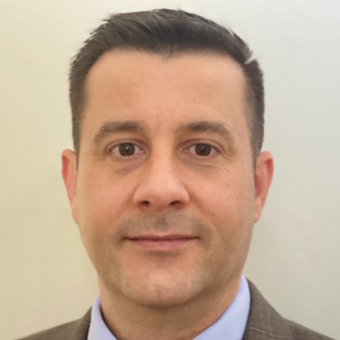
Edward Cuevas
I am a Lieutenant Colonel in the U.S. Army and a Foreign Area Officer (FAO) working in the Indo-Pacific with an emphasis on Northeast Asia. I have served in various Army, joint, and interagency positions developing and implementing U.S. national security policy and military strategy, providing assessments on key issues affecting support for national security strategy objectives, and supporting key leader interaction with senior military and civilian leaders. My most recent assignments include South Asia Country Director and Republic of Korea (ROK) Country Director, Policy and Plans Directorate, J5, HQs Indo-Pacific Command (2013-2016); Branch Chief, Government Relations, Policy and Plans Directorate, J5, HQs U.S. Forces Japan (2016-2019); and Deputy Chief, Joint U.S. Military Advisory Group-Philippines (JUSMAG-P), U.S. Embassy, Manila, Philippines (2019-2020). My research focus is on the impact/implications of alliances on U.S. foreign and domestic policy. I have a Bachelor of Arts Degree in History from the University of Missouri-Columbia and a Master of Arts Degree in Asian Studies from the University of Hawaii-Manoa.
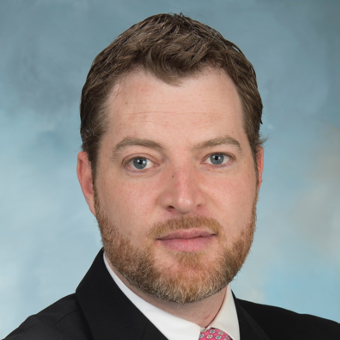
Christopher Darnton
I have a PhD from the Department of Politics at Princeton University. At CISAC, I am writing a book on the hundred-year history of U.S. security cooperation in Latin America, using declassified military documents to analyze the day-to-day work of alliance politics from the vantage point of officers in the field. How should we explain and understand military roles in inter-American relations beyond specific cases of intervention, and what lessons should inform US defense cooperation and military diplomacy today? My broader work examines the domestic and bureaucratic politics of foreign policy in the Americas, particularly related to enduring rivalries and regional wars; conflict resolution and public diplomacy; developing-country diplomacy in the Cold War and in contemporary great power competition; and the refinement of archival and case-study research methods in security studies.
I am an associate professor of national security affairs at the Naval Postgraduate School, where I have worked since 2016, teaching Latin American politics, international relations, and US foreign policy. Before NPS, I taught for seven years at the Catholic University of America, and before that, for a year at Reed College. I also served as president of the Foreign Policy section of the American Political Science Association; as a contributing editor to the Library of Congress' Handbook of Latin American Studies; and as a summer associate at the RAND Corporation.
Hobbies/Interesting Facts: My works in progress include Brazilian Portuguese, various fretted acoustic instruments, two young children, and a 1962 Buick.
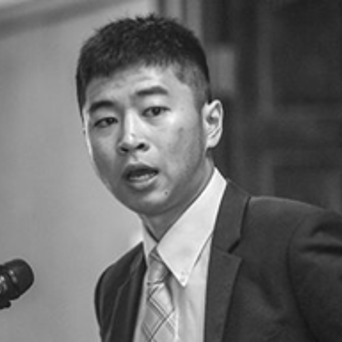
Jeffrey Ding
I am a Ph.D. candidate in the Department of Politics and International Relations at the University of Oxford. My current research is centered on how technological change affects the rise and fall of great powers. Through investigating historical cases of industrial revolutions, I trace causal mechanisms that connect significant technical breakthroughs and economic power transitions — with an eye toward the implications of advances in AI for a possible U.S.-China power transition. My previous research covered related topics, including China's development of AI, identifying strategic goods and technologies, and technical standards as a vehicle of AI governance.
I have been a researcher at Georgetown's Center for Security and Emerging Technology, and also at Oxford's Centre for the Governance of AI. Before my PhD, I completed my M.Phil in International Relations at Oxford on the Rhodes Scholarship.
Hobbies/Interesting Facts: In the pre-Covid era, I enjoyed playing pick-up ultimate frisbee and basketball. Now, I watch other people play video games (League of Legends).
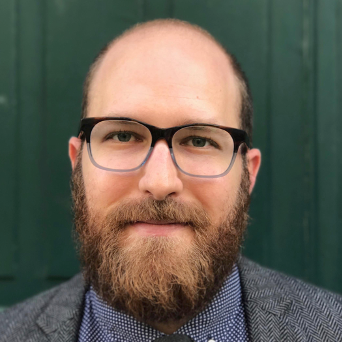
John R. Emery
I have a Ph.D. in Political Science from the University of California, Irvine. My research focuses broadly on the intersection of ethics of war, security studies and technology. Specifically, current projects are based on archival research at the RAND Corporation in Santa Monica, CA exploring 1950's nuclear wargaming and how notions of social science and deterrence theory were contested between wargaming as art or science. By examining this concrete historical case of new technologies of war and improving social scientific methodologies, I proffer insights into contemporary dilemmas of military AI and ethics of war today.
I was formerly a Tobis Fellow at the Interdisciplinary Center for the Scientific Study of Ethics and Morality at University of California, Irvine. There, I explored the rise of collateral damage estimation algorithms in the U.S. Air Force, and how socio-technical interactions impact ethics of due care in war. Previous work on drones, ethics, counter-terrorism, and just war is published in Critical Military Studies, Ethics & International Affairs, and Peace Review. In 2017-2018 I was awarded the NSF-funded Technology, Law and Society Fellowship to undertake an interdisciplinary study of the impact of AI, Big Data, and blockchain on law and society scholarship.
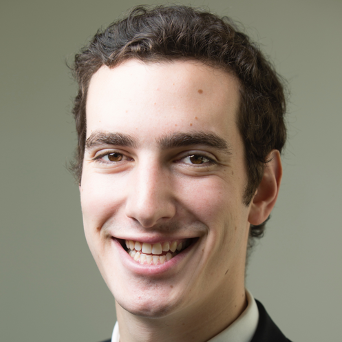
Josh A. Goldstein
I am a Ph.D. (DPhil) candidate and Clarendon Scholar in International Relations at the University of Oxford. My research interests lie in international security, political psychology, and foreign policy decision-making. My 3-paper doctoral dissertation takes a multi-method approach to study the challenges that democracies face from influence operations. Beyond my dissertation, I am pursuing projects related to political disinformation and great-power competition.
For the 2020-2021 year, I am a CISAC pre-doctoral fellow with the Stanford Internet Observatory and part of the inaugural class of non-resident Han J. Morgenthau Fellows at the Notre Dame International Security Center. I completed a MPhil in International Relations (with Distinction) at Oxford and a BA in Government from Harvard College (summa cum laude). I have assisted with research and writing related to international security at institutions including the Belfer Center, Brookings Institution, House Foreign Affairs Committee, and Department of Defense.
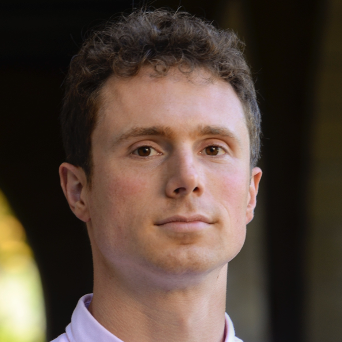
Daniel Greene
I have a Ph.D. from the Graduate School of Education at Stanford University. I work with Dr. Megan Palmer on strategies for risk governance in biotechnology. I use computational social science methods to identify factors that influence the decisions of biology labs to engage in potentially risky research. I have previously worked with Prof. Carol Dweck to develop and test social-psychological interventions to improve student motivation at scale. My dissertation identified and influenced novel psychological constructs for motivating unemployed and underemployed adults to pursue job-skill training. My work has been supported by the Open Philanthropy Project, the Carnegie Foundation for the Advancement of Teaching, the Gates Foundation, the Stanford Digital Learning Forum, and an Amir Lopatin Fellowship.
Previously, I worked for five years as a data scientist and product developer at the Project for Education Research That Scales, a nonprofit that develops resources and infrastructure for disseminating best practices from education research. I also hold a BA in Cognitive Science (Honors) from Rutgers University.

Jacqueline L. Hazelton
I have a PhD from the Department of Politics at Brandeis University. As a student of international relations, I study the political effects of uses of force. I ask how and why great powers use organized violence to try to enhance their own security. I examine what states hope to accomplish through military intervention into internal conflicts and what actually comes of it. The theoretical and empirical puzzles motivating my current work center on liberal great power concerns about how internal conflict and regime type within smaller states affect their own security and global stability. My interests include international security, security studies, uses of force, and U.S. foreign and military policy.
I am an assistant professor at the U.S. Naval War College. My first book, "Bullets Not Ballots: Success in Counterinsurgency" will be published in May by the Cornell University Press Studies in Security Affairs Series.
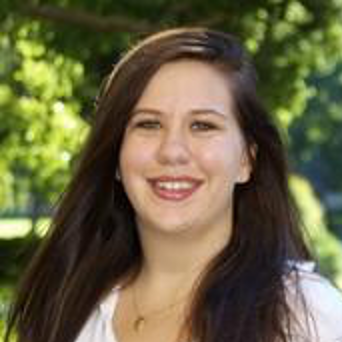
Lindsay Hundley
I have a Ph.D. from the Department of Political Science at Stanford University. My primary research examines why states fight over the leadership and institutions of other countries, and my book-style dissertation project explores the role of political ideology in shaping both how leaders perceive threats from other states and their willingness to resort to subversion. In other research, I leverage advances in political methodology to shed new light on enduring questions in international politics, with a particular emphasis on experimental tests of formal models and the use of machine learning techniques to process and analyze political texts. My work has been published at the Journal of Politics and International Studies Perspectives.
Before joining CISAC, I was a pre-doctoral research fellow with the International Security Program at Harvard Kennedy School's Belfer Center for Science and International Affairs. At Stanford, I was a Gerald J. Lieberman Fellow -- one of the University's highest distinctions awarded to doctoral students for outstanding accomplishments in research, teaching, and academic leadership.
Hobbies/Interesting Facts: I am a first-gen college student. In my free time, I enjoy traveling, hiking, and photography.
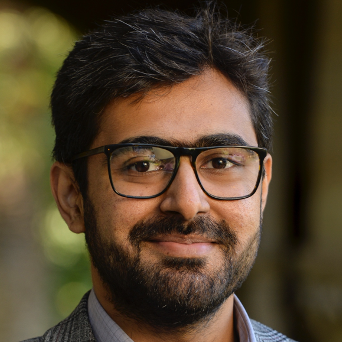
Asfandyar Ali Mir
I have a PhD in Political Science from the University of Chicago. I am a Postdoctoral fellow at the Center for International Security and Cooperation at Stanford University, where I was also a Predoctoral fellow from 2017 to 2018. My research interests span international security and US foreign policy issues, with current work on counterterrorism, drone warfare, political violence, counterinsurgency, al-Qaida, South Asian security, and misinformation dynamics, and a geographic focus on Afghanistan, India, and Pakistan. Some of my research has appeared in International Security, International Studies Quarterly, and Security Studies and my research has been supported by the United States Institute of Peace and the Pearson Institute.

Ryan A. Musto
I have a Ph.D. in History from The George Washington University. I am currently completing a book manuscript on the international history of regional denuclearization. With my work, I seek to better understand the geopolitical and geostrategic dynamics that lead to proposals for regional denuclearization and determine their outcome. I also look to further situate nuclear weapons within our understanding of the global north-south divide. Ultimately, I aim to produce works of “applied history” that can inform contemporary efforts towards the completion of denuclearized zones and nuclear arms control more broadly.
I have served as a Stanton Nuclear Security Fellow at the Massachusetts Institute of Technology (MIT) and as a Nuclear Security Fellow with the Fundação Getúlio Vargas in São Paulo, Brazil. My work has been published in Diplomatic History, Diplomacy & Statecraft, Polar Record, Bulletin of the Atomic Scientists, and Americas Quarterly, amongst other outlets. I am also a frequent contributor to the Wilson Center’s Nuclear Proliferation International History Project (NPIHP). I hold a master’s degrees in international and world history from Columbia University and the London School of Economics, and a B.A. (hons.) in history from New York University (NYU).
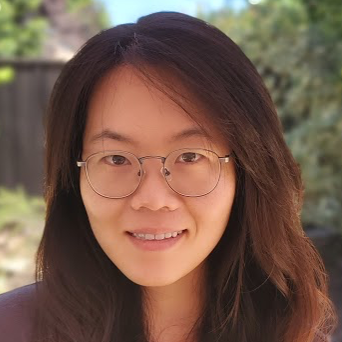
Sulgiye Park
I have a Ph.D. in Geological Sciences from Stanford University. At CISAC, I want to focus on understanding the front-end of uranium pathway in North Korea. In addition to researching the type of uranium ore deposits that exist in North Korea, I want to use my science background to study the geological and mineralogical relationship between North Korea's Phyungnam basin in which the main North Korean uranium mine (Pyongsan) is located and South Korea's Okchon Metamorphic Belt, which hosts uranium-bearing metalliferous shale. Furthermore, I want to research the different processes North Korea could use in its uranium milling facilities.
Prior to joining CISAC, I was a postdoctoral scholar at Stanford Geological Sciences and Stanford Institute for Materials and Energy Sciences, where I studied materials' behaviors at extreme environments. I spent most of my time conducting experiments in the lab. I also spent some time researching the front-end of uranium fuel cycle in North Korea, mainly uranium mining and milling processes.
Hobbies/Interesting Facts: I love doing pottery and art! I have a dog named Tofu, whose ears are asymmetric.
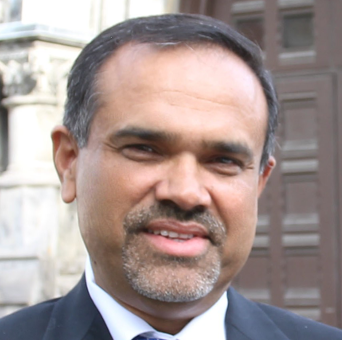
T.V. Paul
I am a James McGill Professor of International Relations in the Department of Political Science at McGill University, Montreal, Canada and a Fellow of the Royal Society of Canada. My main scholarship can be catalogued in four clusters: War and Conflict; International Order and Regional Order; Nuclear Weapons and Nuclear Proliferation; and International Relations of South Asia/Asia-Pacific. I served as the President of International Studies Association (ISA) for 2016-17. I am the author or editor of 21 books and over 75 scholarly articles/book chapters in the fields of International Relations, International Security, and South Asia. I am the author of the books: Restraining Great Powers: Soft Balancing from Empires to the Global Era (Yale University Press, 2018); The Warrior State: Pakistan in the Contemporary World (Oxford University Press, 2013); Globalization and the National Security State (with N. Ripsman, Oxford University Press, 2010); The Tradition of Non-use of Nuclear Weapons (Stanford University Press, 2009); India in the World Order: Searching for Major Power Status (with B.R. Nayar Cambridge University Press, 2002); Power versus Prudence: Why Nations Forgo Nuclear Weapons (McGill-Queen’s University Press, 2000); and Asymmetric Conflicts: War Initiation by Weaker Powers (Cambridge University Press, 1994). I currently serve as the editor of the Georgetown University Press book series: South Asia in World Affairs.
Hobbies/Interesting Facts: Reading Travel Cuisine gardening walking/hiking
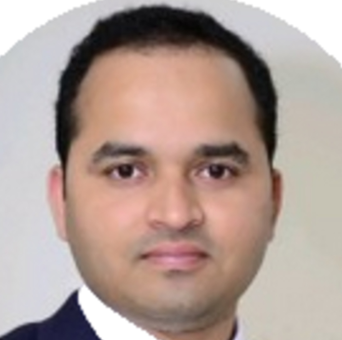
Gorakh Pawar
I have a PhD from the Department of Mining Engineering at the University of Utah. I am a staff scientist in the Department of Material Science and Engineering at Idaho National Laboratory (INL), which is part of the U.S. Department of Energy's complex of national laboratories, and is the United States leading center for nuclear energy research and development. The laboratory performs work in each of the strategic goal areas of DOE: energy, national security, science, and environment. My research interest is exclusively focused on the design, discover, and optimize the functionality of critical materials and ensure their efficient utilization in emerging critical technologies.
The continuing depletion of valuable terrestrial resources—such as critical elements, minerals, and metals that are absolutely necessary for the development and sustainability of next-generation energy technologies—have enormously shifted the twenty-first century’s space-race landscape. The movement is towards the exploration, discovery, extraction, and transportation of technologically and economically valuable extraterrestrial elements, minerals, and metals (e.g., rare earth elements, uranium, helium-3, and cobalt). However, when this extraordinary reality eventuates, commercial metal and mineral exploration, extraction, and recovery efforts in celestial space will have to confront legal, social, and geopolitical issues based on existing international and domestic space laws within the context of continuously degrading global sociological, economic, and political situation. My forward-looking work is aimed to investigate critically these roadblocks and identify the role of relevant establishments and stakeholders in the resolution of major conflicts and unforeseen challenges. The hope is potentially to enhance mutual understanding, trust, and cooperation between governments and private and public stakeholders to ensure a stable, secure, and peaceful world.
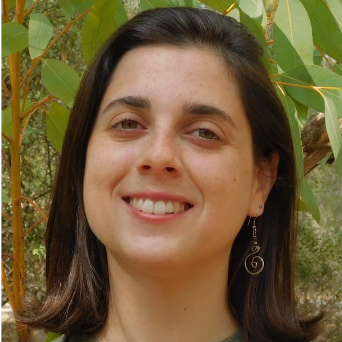
Michelle Spektor
I am a PhD candidate in History, Anthropology, and Science, Technology, and Society (HASTS) at the Massachusetts Institute of Technology, and a 2020-21 CISAC/HAI Pre-doctoral Fellow at Stanford University. My research examines how biometric identification transformed from a technology of exception into states’ preferred technique for identifying their own citizens in everyday life, and how these developments shaped state-citizen relationships. I am also interested in the ways past state identification infrastructures inform the design, policy, and public receptions of biometric surveillance in the present. To that end, my dissertation traces the shared history of British and Israeli biometric identification practices from 1904 to 2017 by studying the conceptions of identity inscribed into biometric registries in the UK and Palestine/Israel during this period. It considers the historical, socio-political, and technological conditions that made it possible for both the Israeli and British governments to propose national biometric identification systems for their own citizens in the early 21st century.
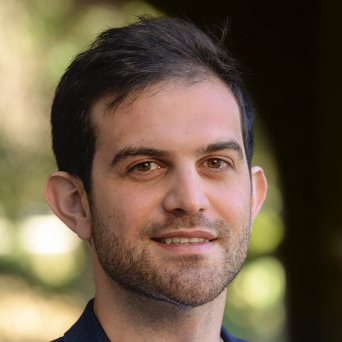
Julien de Troullioud de Lanversin
I have a PhD from the Program on Science and Global Security at Princeton University. I am interested in how to verify and reconstruct past fissile material production programs with scientific tools. To that end, I developed innovative methods that use isotopic analysis from nuclear reactors to gain information on their past operation (nuclear archeology) and designed an open source software that can compute the istopic composition of fissile materials from nuclear reactors. My current research looks at the various modalities of the production of plutonium and tritium in production reactors and how transparency on tritium could be used to improve estimates on plutonium stockpiles. I also study security questions related to civil and military nuclear programs in Northeast Asia through the lens of fissile material, with a focus on China and North Korea.
I visited the Institute of Nuclear and New Energy Technologies at Tsinghua University for one semester in 2018 to collaborate with Chinese experts on work related to nuclear engineering and arms control. My work on nuclear archaeology has been published in the Journal of Science and Global Security. I received my Diplôme d’Ingénieur (M.Sc. And B.Sc.Eng.) from Ecole Centrale de Marseille in 2014. That same year I also obtained a M.Sc. in Nuclear Science and Engineering from the University of Tsinghua where I was a recipient of the Chinese Government Scholarship. I speak and use Chinese in my research and am a native French speaker.
